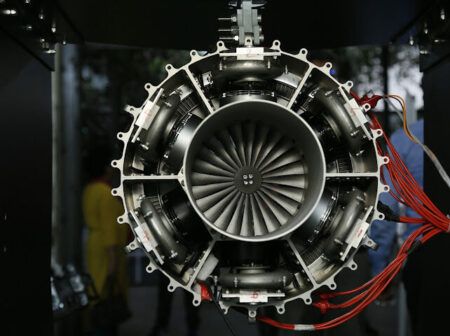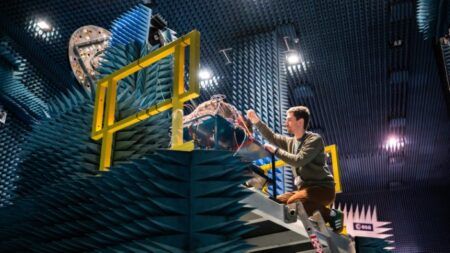Scottish-based rocket developer Skyrora has built a European engine test facility in Europe as it continues to test and develop its satellite launch platform towards commercial use.
The facility, which the company is not specifying the location of for “commercial reasons”, is being used for the first phase of testing on its 30kN rocket engine, but is capable of testing engines up to 70kN for their sub-orbital and orbital launch vehicles.
Skyrora engineers at the site are progressing well to completing a full burn and gimbal test, which is required before rockets can be launched into space, the company said.
Skyrora’s sub-orbital and orbital engines are powered by hydrogen peroxide and kerosene, which it says reduces the cost and emissions from launching.
The 30kN engine under test has been constructed using additive manufacturing techniques and will be the main source of thrust for the suborbital vehicle SkyLark-L, which was formerly known as Skyrora 1 and is expected to be launched for the first time next year.
The 30kN engine is nearly 10 times greater in thrust than the 3.5kN upper stage engine which Skyrora successfully test fired at Newquay Airport, Cornwall, in July 2019.
Skyrora said, “The next qualitative step for this engine is the full test firing cycle. There are, however, still a number of iterations of 30 second tests prior to progressing on this. Thereafter Skyrora will be seeking to finalise and proceed to testing the 70kN engine.”
Skyrora is working with UK-based space industry associations and regulatory authorities towards reaching orbit by 2022 with the Skylark-L rocket. Skyrora’s Chief Executive and founder, Volodymyr Levykin, said, “This is a huge milestone for Skyrora and marks the start of our test program for our larger engines.
“Our team has worked incredibly hard to develop our engine technologies so Skyrora can help make space more accessible for all. Skyrora will continue to work to ensure the world-changing benefits of space are realised here in the UK and in Europe.”




